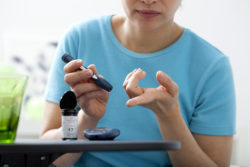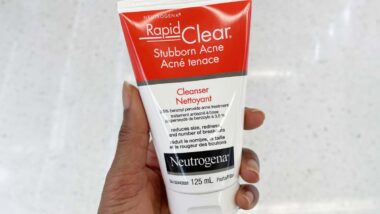 Johnson & Johnson is facing a new Invokana lawsuit from an Alabama woman alleging serious diabetic ketoacidosis injury. The woman alleges that as a result of her ketoacidosis, her type-2 diabetes has been made more difficult to treat.
Johnson & Johnson is facing a new Invokana lawsuit from an Alabama woman alleging serious diabetic ketoacidosis injury. The woman alleges that as a result of her ketoacidosis, her type-2 diabetes has been made more difficult to treat.
Plaintiff Christina B. was prescribed Invokana in August 2014 to manage her type-2 diabetes symptoms. Soon after starting the medication, Christina reportedly suffered an episode of ketoacidosis. After reporting to her physician, she was officially diagnosed with diabetic ketoacidosis on Feb. 27, 2015.
Christina says this episode of ketoacidosis was caused by Invokana. She states that she never would have opted to use Invokana if she had known the risk of diabetic ketoacidosis injury.
Her Invokana Lawsuit is Case No. 3:17-cv-01292-BRM-LHG in the U.S. District Court of New Jersey, Trenton Division.
Overview of Invokana Diabetic Ketoacidosis Injury
Diabetic ketoacidosis is a condition that occurs when ketones, or blood acids, build up in the body and make the blood become very acidic. This causes problems in the body’s circulation and especially makes problems for the kidneys. Ketoacidosis can quickly lead to serious kidney damage if not properly managed.
Diabetic ketoacidosis typically occurs when the body becomes unable to metabolize sugar due to lack of insulin. Cells then metabolize fat instead. Type-2 diabetes is a condition in which the body has trouble producing an adequate amount of insulin, which is needed to absorb and process nutrients from food.
Without medications like Invokana, patients can suffer a number of complications like insulin shock or neuropathy. It is important to note that many type-2 diabetes medications cannot work without the presence of insulin, making diabetic ketoacidosis injury very problematic for patients.
Invokana was approved by the FDA in March 2013. It’s a member of the sodium glucose co-transporter 2 (SGLT2) inhibitor medication class. These medications work by preventing reabsorption of excess sugar in the kidneys. The excess sugar is then expelled through urination.
However, this treatment mechanism has allegedly resulted in the numerous diabetic ketoacidosis injury reports submitted by patients. According to the FDA’s Adverse Event Reporting System (FAERS), 20 cases of diabetic ketoacidosis, ketoacidosis, or ketosis were submitted by patients prescribed with SGLT2 inhibitors between March 2013 and June 6, 2014.
The FDA released a later communication on May 15, 2015, warning SGLT2 inhibitor patients to be wary of any symptoms of diabetic ketoacidosis including:
- Breathing Difficulty
- Abdominal Pain
- Nausea
- Vomiting
- Confusion
- Fatigue
The FDA recommends that SGLT2 inhibitor patients who experience any of these or other unexplained symptoms should contact their physicians immediately.
In general, Invokana lawsuits are filed individually by each plaintiff and are not class actions.
Do YOU have a legal claim? Fill out the form on this page now for a free, immediate, and confidential case evaluation. The attorneys who work with Top Class Actions will contact you if you qualify to let you know if an individual lawsuit or class action lawsuit is best for you. Hurry — statutes of limitations may apply.
ATTORNEY ADVERTISING
Top Class Actions is a Proud Member of the American Bar Association
LEGAL INFORMATION IS NOT LEGAL ADVICE
Top Class Actions Legal Statement
©2008 – 2025 Top Class Actions® LLC
Various Trademarks held by their respective owners
This website is not intended for viewing or usage by European Union citizens.
Get Help – It’s Free
Join a Free Invokana Class Action Lawsuit Investigation
If you or a loved one suffered ketoacidosis or kidney failure after taking Invokana, you may have a legal claim. See if you qualify to pursue compensation and join a free diabetes medication class action lawsuit investigation by submitting your information for a free case evaluation.
An attorney will contact you if you qualify to discuss the details of your potential case.
Please Note: If you want to participate in this investigation, it is imperative that you reply to the law firm if they call or email you. Failing to do so may result in you not getting signed up as a client, if you qualify, or getting you dropped as a client.
Oops! We could not locate your form.












